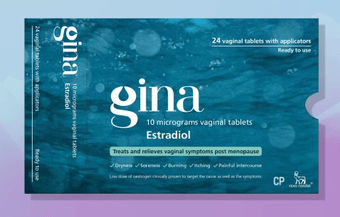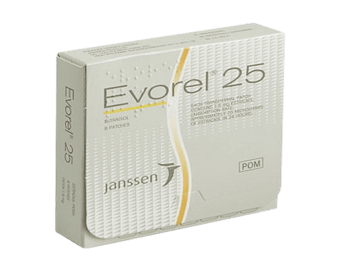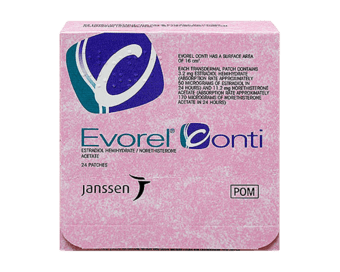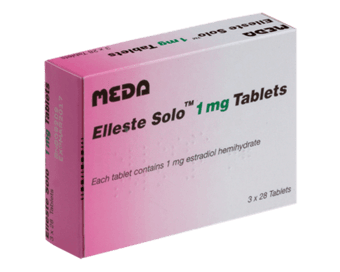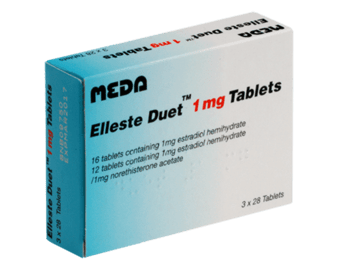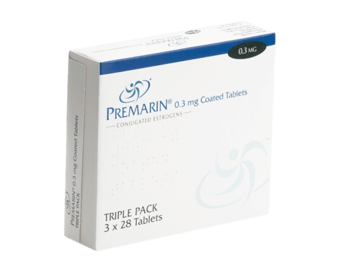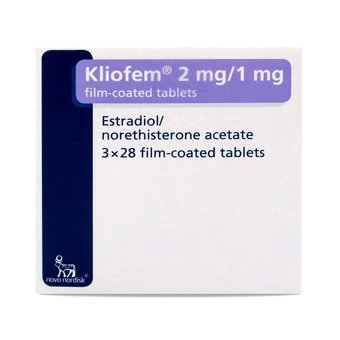Menopause (HRT)

More information
Introduction
Treatments
More information
Once an online consultation has been been approved by our medical team, our pharmacy will safely prepare and ship your treatment to you in discreet packaging using Royal Mail or DPD.
What Is Menopause?
Menopause is a natural sign of aging, and most women will start to experience it anywhere between the age of 44 to 55 years old. In the early stages, you may notice that your periods start to become less frequent. For some women, they can suddenly stop altogether. Menopause not only stops your periods, but it also means a woman can no longer become pregnant naturally.
As women get older, their oestrogen levels decline, which can bring on menopause. In the UK, the average age for a woman to reach menopause is 51. Most women will have an experience with menopause at some point in their lives.
What Causes Menopause?
Menopause is most likely to occur as you grow older. Your body starts to experience a change in the balance of sex hormones. This affects a woman's ability to naturally get pregnant as her ovaries stop producing as much oestrogen. As a result, you no longer have the capability of releasing one egg each month.
Menopause can also occur as a result of several different treatments. Surgery to remove ovaries, breast cancer treatments, radiotherapy, and chemotherapy can all contribute.
Although menopause typically occurs as you get older, younger women can experience it too. This is known as premature or early menopause. It can occur at any age, and in most cases, there is no clear cause that can be identified.
Menopause Symptoms
The symptoms of menopause can differ from person to person, and every woman's menopause experience is unique to them. For some, symptoms may be a lot more severe, typically this would happen when menopause occurs suddenly or over a short period of time. Other health conditions like breast cancer or a hysterectomy can also increase the severity of your symptoms.
Typically, if you are going through the early stages of menopause, you may experience symptoms such as:
- Less frequent menstruation
- Heavier or lighter periods than you are used to
- Hot flashes and flushing
- Insomnia
- Vaginal dryness
- Weight gain
- Headaches
- Hair thinning
It is important to remember that every woman's menopause journey is different. Symptoms will vary among women, but you'll likely experience some irregularity in your periods before they end.
How Is Menopause Diagnosed?
If you are having concerns regarding menopause and you feel that you are experiencing some early symptoms, it is highly recommended that you make an appointment with your doctor.
Diagnosis is not something to be afraid of, and the sooner you can identify your condition, the quicker you can work to treat it. Typically, a menopause diagnosis will not require any rigorous tests. However, in some cases, your doctor may request a blood test to check your level of Follicle-stimulating hormone (FSH) and Thyroid-stimulating hormone (TSH). If you have elevated FSH levels, this could be a sign that you are experiencing menopause.
Menopause signs and symptoms are usually enough to signal that your menopausal transition has started. As always, if you are unsure whether you have started your transition or not, consult with your doctor.
Menopause Types
There are three different types of menopause, and each one occurs during a specific timeframe during your transition. Although menopause signals the end of a woman's reproductive years, the period before (perimenopause) and after (postmenopause) also have varying signs and symptoms.
Menopause
This occurs when the woman's menstrual cycle comes to a halt. At this stage, the hormone oestrogen has started to produce less frequently, and as a result, the ovaries will stop releasing eggs. Once menopause begins, a woman cannot become pregnant naturally.
Postmenopause
Once a woman has not menstruated for an entire year, they have reached a stage known as postmenopause. During this stage, some women may experience a decrease in the severity of their menopausal symptoms. However, this is not the case for everyone. Menopausal symptoms can continue for up to a decade and beyond after diagnosis.
Postmenopausal women are at an increased risk of several health conditions. This is the result of lower levels of oestrogen. Osteoporosis and heart disease are amongst some of the most common conditions that postmenopausal women can experience.
Medication and lifestyle changes may help to reduce the risk of some of these conditions.
Perimenopause
Perimenopause, otherwise known as the menopause transition, can begin up to ten years before menopause. During this stage, the ovaries will slowly start to produce less oestrogen.
Typically, this stage will occur in a woman's 40s, but it has also been known to start in the 30s for some women. Perimenopause will last up until menopause. Some women will start to experience menopausal symptoms. However, menstrual cycles will continue during this time, allowing for natural pregnancy.
How Long Does Menopause Last?
The duration of your symptoms will vary from person to person. On average, most symptoms last around four years from your last period. However, this is not the case for every woman, as around 1 in every 10 women experiences them for up to 12 years.
Typically, symptoms that are associated with perimenopause like hot flashes, gradually ease during menopause and postmenopause.
If you are struggling to manage your symptoms, then it is advised that you make an appointment with your doctor or pharmacist. They will be able to offer you some expert advice about your menopause journey and help you find solutions to better manage your condition.
Complications of Menopause
Like most health conditions, there can be some complications when it comes to menopause. They can occur during any stage and it is important to remember that not all women experience the same complications.
Some of the most common complications of menopause include:
- Vulvovaginal atrophy
- Dyspareunia, or painful intercourse
- Slower metabolic function
- Osteoporosis, or weaker bones with reduced mass and strength
- Mood or sudden emotional changes
- Cataracts
- Periodontal disease
- Urinary incontinence
- Heart or blood vessel disease
HRT (hormone replacement therapy) Treatment
The main treatment for menopausal symptoms is hormone replacement therapy (HRT).
Hormone replacement therapy works by replacing the hormones in the body that are lost during menopause.
The majority of menopausal symptoms (such as hot flushes and vaginal dryness) are caused by decreasing levels of oestrogen in the body. By topping up the levels of hormones oestrogen and progesterone that naturally decrease during menopause, HRT helps to effectively relieve these menopausal symptoms.
There are many different HRTs available that can help, which typically come in either tablet or patch form, and can be split broadly into three categories:
- Continuous combined HRT: Recommended for post-menopausal women (those who haven’t had a menstrual period for over a year), this type of HRT involves taking oestrogen and progestogen every day, without a break.
- Cyclical or sequential HRT: this treatment is typically recommended for perimenopausal women who have menopausal symptoms but still experience some form of the menstrual cycle. Oestrogen is taken every day, and progestogen alongside it for the last 14 days of your cycle. Sequential HRT may be taken in monthly or 3-monthly cycles.
- Oestrogen-only HRT: this is only recommended for people who have had a hysterectomy, due to an increased risk of developing womb cancer.
The right type of HRT for you will depend on a few different factors, such as where you are in menopause or whether you have a womb. Your GP or pharmacist will be able to give you guidance on which is most suitable for you.
Other menopause treatment
As well as HRT, there are various different treatments that can help you to ease other menopausal symptoms that you may be experiencing. The type of treatment you will need will depend on what symptoms you are experiencing.
If you have any questions regarding menopause treatment, our expert team here at Cloud Pharmacy are on hand to answer your queries.
Guides
How it works
First...
Complete a quick eligibility check
Then...
Order your treatment
Finally.
Fast, confidential delivery to your door
